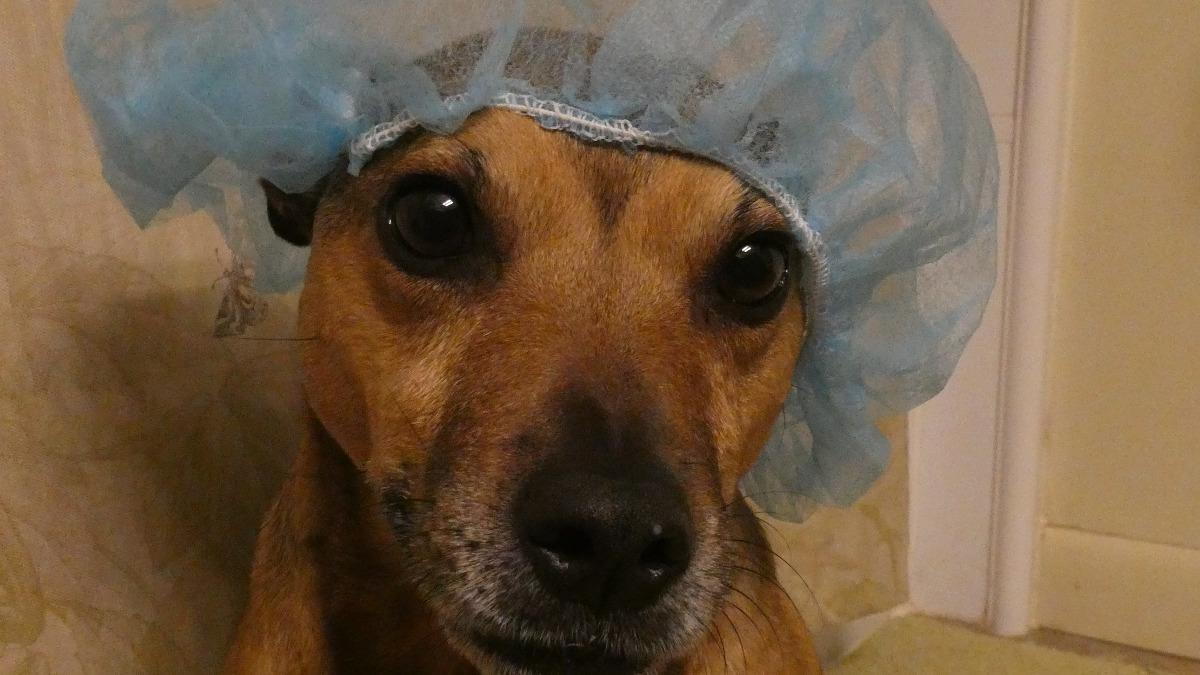What to Expect After Your Pet has Surgery

- posted: Jan. 07, 2022
What to Expect After Your Pet has Surgery
Let’s face it, our pets are part of our families. And when they need to have surgery, it can be scary. From a common spay or neuter to an emergency procedure, how to best care for a pet after he or she has had surgery is a common question. Let’s look at what to expect after your pet has surgery.
Full recovery from anesthesia can take 12-36 hours depending on the age of the pet, how long he or she was under anesthesia and what drugs were used. Pets may be a little disoriented or wobbly when they get home and this can last into the next day. Make sure pets are supervised and that they cannot fall off furniture or tumble down the stairs. Some pets may benefit from staying in a crate, but others may be more anxious if confined, so use your best judgment. Make sure other pets and children cannot bother your pet after her surgery—keep her in a quiet place where she can rest.
Crying or whining after surgery is common. In most cases, it is due to the disorientation after anesthesia—pets may be confused or seeking attention. But some pets may vocalize if they are in pain, so, be sure to give any pain medications as directed, even if your pet seems to be feeling OK. They can’t talk to us, so we want to make sure any pain is managed. If you feel your pet is painful despite using pain medications as directed, check with your vet. We may be able to adjust dosages or add medications to make your pet more comfortable. Signs of pain can include hiding, sitting hunched, or not eating.
Post-op nausea is less common as we typically give an injection of a drug called Cerenia to reduce the nausea and vomiting that sometimes occur with anesthetic drugs. Your pet may not feel like eating the day he comes home from surgery and this is OK, especially after dental procedures where the mouth may be a little sore. However, if he is refusing food 24 hours later or is vomiting, contact your vet. Feeding about half the normal amount of your pet’s food is recommended the day of surgery and pets who have had dental procedures should eat soft/canned food for a few days.
Diarrhea or constipation sometimes occur after surgery. Pets may not have a bowel movement the first 24 hours after surgery due to fasting and the anesthetic drugs and pain medications sometimes slow intestinal contractions. If your pet has not had a bowel movement within 48 hours after surgery or is straining to defecate but unable to pass any stool, notify your vet. Pets may also experience post-op diarrhea. If it is mild and there is no blood, monitor your pet. If bloody, watery or severe diarrhea occurs, again, let your vet know. Medications may need to be adjusted or your pet may require additional drugs to stop the diarrhea.
Monitor your pet’s incision for any swelling, odor, drainage, redness or open areas. Pets may need to wear a cone collar or a surgery suit to prevent licking and scratching at the incision. Incisions are typically healed within two weeks, so the collar or suit should be worn, especially if unsupervised, for those two weeks. Some surgeries have sutures under the skin that will dissolve in time. Others may have sutures or staples that will need to be removed. You should not need to clean or apply anything to the incision unless directed to do so. If the incision looks sore, infected or open, you guessed it—contact your vet!
Pets should be kept calm—no running or jumping, no walks, no rough play—for at least 3-5 days after surgery, sometimes longer. If your pet is too active, the incision may open or develop a fluid pocket under the skin known as a seroma. If you are concerned your pet may be a little too rambunctious, a sedative may help to keep him or her calm. Orthopedic procedures such as cruciate ligament repair can have a prolonged recovery time of several months. Follow your vet’s directions for recommended exercise restriction to prevent complications.
Hopefully this helps to answer some common questions about post-operative care. Remember, if you have questions about whether something is normal or if something doesn’t seem to be going as expected, don’t hesitate to contact your veterinary team or a local emergency clinic for advice after hours. Surgery can be scary but post-op concerns shouldn’t be.
This blog brought to you by the Patton Veterinary Hospital serving Red Lion, York and the surrounding communities.
Location
Patton Veterinary Hospital
425 E Broadway
Red Lion, PA 17356
